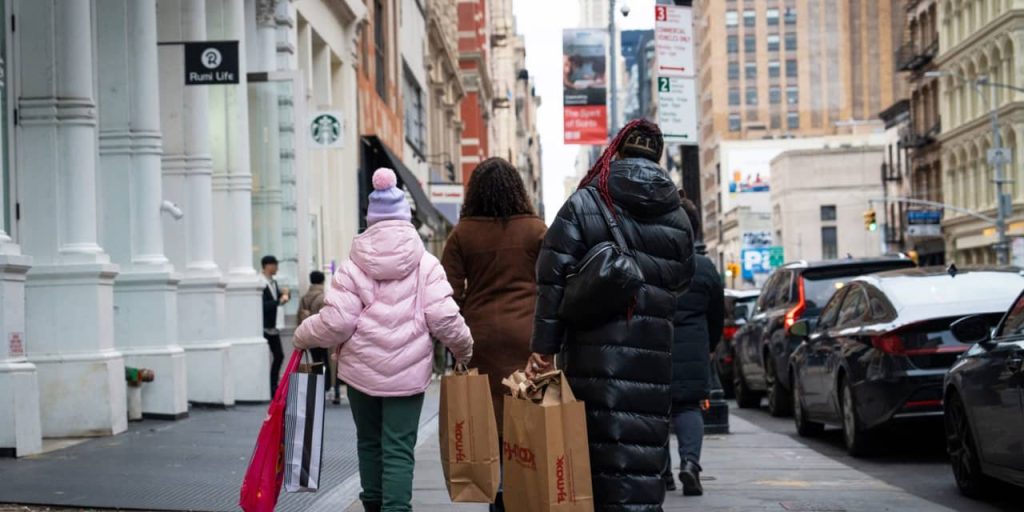If the cold weather and postholiday blues have you dreaming of July instead of January, you’re not alone. Retailers have reason to wish away the first part of the year as well.
The sector has had a painful start to 2024, with the
SPDR S&P Retail ETF,
falling about 3% in the first few days of the year. Of course it isn’t alone; the
S&P 500
has notched a 1.5% decline so far.
While it appears consumers still spent plenty of money this holiday season, investors are now more concerned about what they’ll do next, without a major reason to keep shopping. Bernstein analyst Aneesha Sherman says investors are right to be worried.
“2024 is shaping up to be a year of two halves for U.S. consumer discretionary spending,” she writes in a new note Thursday. “A first-half middle-income squeeze and trade-down to off-price [retailers], followed by a second-half rally in sportswear and brands driven by easy comparable sales and [interest] rate cuts.”
There’s no shortage of factors constraining middle-class consumers’ budgets. Most already spent their excess pandemic savings after years of inflation, student loan payments have begun again, and higher interest rates have inflated the cost of ever-increasing credit card debt. Little wonder then that Sherman expects these Americans to bargain hunt—rather than buying from mainstream brands and department stores.
Baird analyst Jonathan Komp also put out a cautious update on specialty retail Thursday, warning that earnings estimates are too aggressive and high valuations leave little room for error.
The fourth-quarter rally in the stocks and “positive earnings revisions may prove too optimistic given limited current macroeconomic visibility,” he writes.
Nonetheless, both analysts see better times ahead, specifically in the second half of the year.
“The combination of easy comparables, stronger retail order books, and rate cuts will drive an uptick in the second half for brands, particularly benefiting Sportswear as it continues to take share from Fashion,” Sherman writes. That leads her to name off-price retailer
Burlington Stores
her top pick for the next 12 months and peer
TJX
Cos.as her top pick for the next two years.
Sherman has a $218 price target on Burlington, which closed at $187.85 on Wednesday. She says the market is discounting the off-price group’s underdog too much: It has a “huge” 27% earnings per share compound annual growth rate ahead that’s not priced into the stock.
She has a $107 price target on TJX, representing a gain of about 17% from its latest closing price. The off-price leader is “moving beyond conventional off-price into more categories, higher price points, and higher income customer segments,” Sherman writes. That should lead to higher margins and comparable sales, spearheaded by its top-notch management.
Nike
is her top stock for the next six months however, ahead of the rebound in sportswear, as says the market overreacted to the company warned in December that its fiscal 2024 revenue would be nearly flat. She has a $134 price target on the stock, suggesting upside of nearly 30%.
Baird’s Komp likewise urges investors to be choosy but says that adjustments to earnings expectations could “lead to a better setup closer to midyear.”
Sportswear brands, including Nike, dominate his favorites; On Holdings,
Planet Fitness,
and Hoka owner Deckers Outdoors are also on his list. These look like good bets, he writes, as they are “quality names with visible brand…drivers.”
Plenty of retailers will begin reporting holiday results in the coming weeks, but for better or worse investors have moved onto 2024. The good news is that even if the first half disappoints, there’s reason to hope the sector will have a happy ending to the year.
Write to Teresa Rivas at teresa.rivas@barrons.com
Read the full article here
